Jessica Feenstra
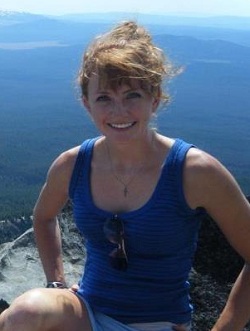 B.S. 2011, Geology
B.S. 2011, Geology
The geological and atmospheric sciences department at Iowa State University is a rich, diverse program that offered me exciting opportunities and challenged me to strive for my greatest. In addition to the academics the department is full of wonderful people, making the academic experience that much more enjoyable. The requirements of this program are clearly laid out and designed to develop the skills necessary to succeed. One of my favorite experiences from this program is the ISU field camp – an exciting and challenging course held in the Bighorn Mountains of Wyoming. I was also able to complete a paleoclimate based senior thesis project working with stable isotopes, and was given partial funding by the department to attend and present at a regional GSA conference in Pittsburgh, Pennsylvania. Upon completion of my degree, my well-rounded education from this university secured me with a research assistantship at the University of Wisconsin-Madison. I felt extremely prepared beginning my graduate degree with the excellent education I received from the Iowa State geology program.
Stephen Guimond
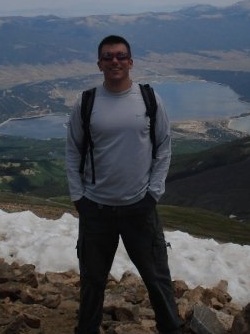 B.S. 2004, Meteorology
B.S. 2004, Meteorology
I am currently a postdoctoral fellow at NASA Goddard Space Flight Center (GSFC) working in the mesoscale atmospheric processes laboratory. My research at NASA involves airborne Doppler radar analysis and hurricane dynamics. I received my B.S. degree in meteorology from Iowa State University (ISU) in 2004 and my M.S. and Ph.D. degrees in meteorology from Florida State University (FSU) in 2007 and 2010, respectively.
I value my education at Iowa State greatly because of the challenging curriculum and the quality of the teaching and research performed by the faculty. Upon graduation in the atmospheric science program at ISU, I felt more than prepared for graduate school. In fact, during my entrance interview at Florida State, several faculty members held ISU’s program in high regard, which set me apart from the large number of graduate students at FSU. One particular aspect of the ISU program that sticks out in my mind is the unique senior thesis research project. I worked closely with Dr. Xiaoqing Wu for over 1 year resulting in my project being published in the Journal of Climate. The senior thesis project provided very valuable experience in research and sparked my interest to pursue this avenue for a career.
I have met and worked with other graduates of the ISU program at many research institutions such as Los Alamos National Laboratory and NASA GSFC and they have similar sentiments. It has been clear to me that with a solid learning environment such as ISU and hard work, success and fulfillment will come naturally.
Logan Karsten
 B.S. 2009; M.S. 2011, Meteorology
B.S. 2009; M.S. 2011, Meteorology
As the world we live in becomes ever increasingly complicated, it can sometimes be difficult to determine what our role is. The Department of Geological and Atmospheric Sciences at Iowa State University played a large role in helping me find my role in a world that has increasing interest in meteorology, climate, and water resources. Built on a strong foundation of math and physics, Iowa State’s core undergraduate meteorology program pushed me to have a comprehensive understanding of how our atmosphere behaves. In addition, application of this knowledge in the classroom using state of the art technology gave me the tools necessary to visualize the concepts behind meteorology.
At the end of my four years, with a bachelor’s degree in sight, I decided to further my knowledge at Iowa State by pursuing my Master’s degree under the guidance of Dr. Kristie Franz, specializing in surface water hydrology. With Dr. Franz’s guidance, I developed applications of remotely-sensed snow pack properties to current operational hydrological snow models used by the National Weather Service. The research I performed during my two years as a graduate student was crucial in propelling me into my current career position at the National Hydrologic Remote Sensing Center in Chanhassen, MN. It is here I continue application of remotely sensed snow pack properties to modeling land surface processes of vital importance to water resources management.
I can remember first arriving at Iowa State, unsure of where I would be in four years with my bachelor’s degree. Six years later with a Master’s degree in meteorology, my uncertainty has transformed into anticipation of how I will further apply my degree to real-world problems involving hydrology and water resources. The faculty members within the department of Geological and Atmospheric Sciences gave me the knowledge and skills necessary to confront various meteorological, climatic, and hydrological challenges that face our society on a day-to-day, year-to-year, and even generation-to-generation basis
Joe Bauman
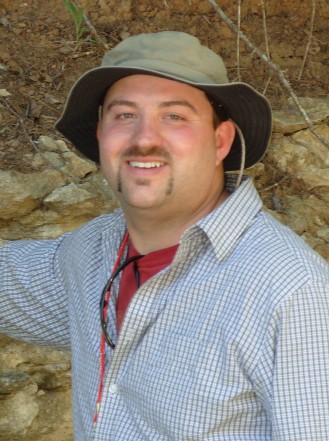 B.S. 2008, Geology
B.S. 2008, Geology
The decision to study geology at Iowa State remains one of the best decisions I’ve ever made. The Iowa State geology professors took a genuine interest in my development and were instrumental in preparing me for graduate school and my career. When I decided I wanted to pursue a career in petroleum geology, my professors aided me in choosing a curriculum that emphasized this–after graduation, during an interview for an internship with an oil company, one of my interviewers commented after reviewing my course list “Joe, I REALLY like your resume.” I got the internship. When I attended graduate school at Texas Tech it became apparent that the instruction I received from the Iowa State Geology Department allowed me to excel in advanced coursework. I consider my BS in geology from Iowa State to have been fundamental in my success.
Isidora Jankov
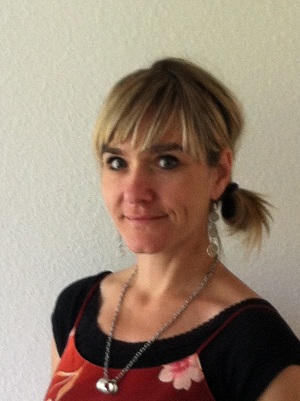 M.S. 2002; Ph.D. 2005, Meteorology
M.S. 2002; Ph.D. 2005, Meteorology
Iowa State University (ISU) Department for Geological and Atmospheric Science provided me with education, experience, opportunities, and friendships that highly influenced development of my career and life in general. I enrolled in graduate program at Iowa State University in 2000. After completing first my Masters in 2002 and then Ph.D. degree in 2005 I got a position at NOAA/ESRL/GSD in Boulder, CO. I worked at NOAA laboratory for six years. Recently I joined a private company for wind forecasting. The education and experience during the graduate school at ISU helped build my confidence and were critical in getting and enjoying my work at NOAA. Furthermore, the excitement about science, innovation and progress that I acquired at ISU helped in my decision making to join a private company founded on cutting-edge science and become a part of this exciting work!!!! While in graduate school I was educated and advised by caring, motivated professors that were truly focused on my and other graduate students’ success. They highly encouraged and supported my work and creativity and always focused on my future and how my time at the ISU could prepare me for future career challenges and excitement. Once again, my experiences, opportunities provided, education received and friendships gained have continued to be a cornerstone of my professional and personal life. It was privilege to be a graduate student at ISU, Department for Geological and Atmospheric Science and continues to be a privilege to be an alumnus.
Mitch Cline
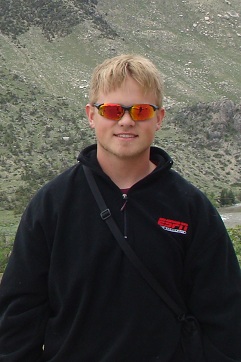 B.S., 2009; M.S. 2011, Geology
B.S., 2009; M.S. 2011, Geology
The Iowa State Geology Department was my second family during college, as I received both my B.S. and M.S. degrees in geology from ISU. The small class sizes allowed for extensive personal interaction with both my fellow students and professors, which stoked my interest in geological processes. Looking back, being on a first name basis with everyone in the geology department (students, staff, and professors) was crucial to my success. I enjoyed my undergrad experience so much that I decided to stay and complete an M.S. in glacial geology. While research consumed most of my time during grad school, I still managed to teach labs for several courses and become close friends with the troop of highly-skilled graduate students that reside at the ISU geology department. Most importantly, the education I received as both an undergrad and grad student from the Iowa State Geology Department provided the necessary experience and skills to be hired as an environmental consultant with URS Corporation prior to graduation. I highly recommend any student considering geology to explore what the Iowa State Geology Department has to offer, as recent faculty hires and ever-increasing departmental enrollment surely signal greater things yet to come.
Adriana Heimann
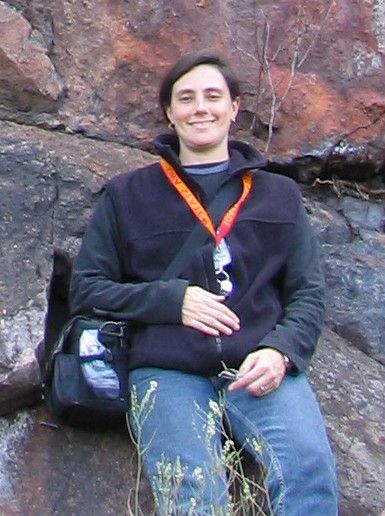 M.S., 2002; Ph.D., 2006, Geology
M.S., 2002; Ph.D., 2006, Geology
Pursuing graduate studies in Geology at the Department of Geological and Atmospheric Sciences at Iowa State University was the best experience of my life. The professors are excellent and caring and there is camaraderie among graduate and undergraduate students, which makes the perfect environment for learning. Coming from Uruguay to ISU was therefore a very easy and enjoyable transition. My Masters and PhD research in metamorphic petrology and economic geology took me to numerous places, including three long trips to Australia along with my advisor, Dr. Spry. Meeting scientists from several universities in Australia was also a great learning experience. There I met several colleagues who turned into friends and long-term collaborators. Dr. Spry was an excellent advisor and friend who was always there to help me and encouraged me to do my best. We continue to be life-long friends and collaborators with him, several other faculty and staff, and fellow students.
The Department of Geological and Atmospheric Sciences provided funds to attend numerous conferences and also covered the costs of a large number of field trips. One of the best experiences I had was a spring break field trip to Death Valley, Joshua Tree National Park, San Gabriel Mountains, Salton Sea, and several other localities where we were able to observe amazing features of igneous, sedimentary, and metamorphic rocks.
I also had the opportunity to work and receive the advice of other professors, which made it a broad learning experience. We published several papers as part of my Masters thesis and PhD dissertation, something extremely important for somebody wanting to take an academic path. After graduating from ISU, I went on to be a post-doctoral research associate in Geochemistry at the University of Wisconsin-Madison, to finally take a position as an Assistant Professor of Mineralogy and Petrology at East Carolina University. I am grateful to all the professors and staff that the education that I received at ISU prepared me very well to be a professor and researcher. I strongly recommend any student wanting to pursue graduate studies to attend ISU and the Department of Geological and Atmospheric Sciences for an outstanding education experience.
Christopher K. Wikle
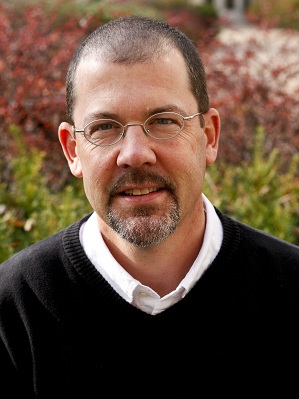 M.S. 1992, Statistics; Ph.D., 1996, Meteorology/Statistics Co-Major
M.S. 1992, Statistics; Ph.D., 1996, Meteorology/Statistics Co-Major
There are three major ways in which my Iowa State education changed my life. The first was when I was considering what school to attend to get my Ph.D. My undergraduate degree and first Master’s degree were in Atmospheric Science. While working on my Master’s degree I developed an interest in Statistics and decided to apply to graduate Statistics programs in the Midwest. I was admitted to several programs with support, and somewhat undecided. Then, I got a call from the Chair of the Statistics Department and a faculty member in Meteorology with the suggestion that I would be a perfect candidate for a co-major in Statistics and Meteorology, and that my background would be ideal for a new Fellowship program in Global Change funded by the Department of Energy. They suggested that I should apply for this Fellowship as a co-major. In short, I applied and received the Fellowship. This series of events was significant in that it opened my eyes to the possibilities of a true interdisciplinary degree, of which I was not aware, and provided a very substantial Fellowship that gave me the freedom to pursue a research program that spanned these disciplines.
The second transformative component of my Iowa State education was the actual coursework I covered in my co-major studies. In both Meteorology and Statistics I was exposed to wonderful teachers who were leaders in their fields. I was able to not only receive instruction in the foundations of my subjects, but I was also exposed to material and topics on the cutting edge of both disciplines. In many respects, the direction of my career was based on some of these experimental courses.
Last, and perhaps most importantly, my professional life was influenced by two great mentors – Dr. Tsing-Chang (Mike) Chen in Meteorology and Dr. Noel Cressie in Statistics. Leading researchers in their respective fields, they gave me the freedom to attempt to build the bridge between these two disciplines with encouragement and advice, while letting me develop my own path. This experience was invaluable developing my research work ethic and in shaping the way in which I approach my research to this day. The personal attention and professional guidance I received was exceptional.
In summary, a great institution is more than just its reputation. It is about the people who make up the institution. In my case, the co-major infrastructure was unique and extremely beneficial, but the true transformative component of my Iowa State education was based on the people. Specifically, the professors who went out of their way to suggest a path for me that I was not aware of, who took the time to develop new courses and improve existing ones to benefit students while facing their own deadlines and research pressures, and finally, who spent countless hours mentoring and advising me on technical and professional components of my degree and my profession. I would not be near the professor I am today had it not been for my education at Iowa State University.
Sharon Zhong
 M.S. 1989; Ph.D. 1992, Meteorology
M.S. 1989; Ph.D. 1992, Meteorology
I received my Ph.D. from the Atmospheric Sciences Program at Iowa State University in 1992 and I still think back very fondly on my time at ISU. I was accepted into several larger atmospheric sciences graduate programs, but ISU’s program was a perfect fit for my research interests in boundary layer meteorology and atmospheric dispersion. Dr. Gene Takle, my advisor, helped me improve my ability to conduct research and publish results. My thesis work, using a three-dimensional finite-element model to examine sea breeze circulations at the Kennedy Space Center in Florida, received a Research Excellence Award and led to three peer-reviewed journal publications. In serving as my advisor, Dr. Takle showed class, flexibility, mastery of the discipline, and endless patience. I try to follow his example whenever I can in my own career as a professor and graduate advisor. I am grateful for his continuous support and always look forward to our email exchanges. I am also thankful for the time the other department faculty devoted to providing me with an outstanding education and preparing me for a successful career as an atmospheric scientist and a university professor. The faculty went above and beyond expectations, always providing assistance. By the time I left ISU, I was equipped with the knowledge and skill I needed to embark on a career in research and teaching without any difficulties. I will always think of the Atmospheric Sciences Program at ISU with fond memories.
